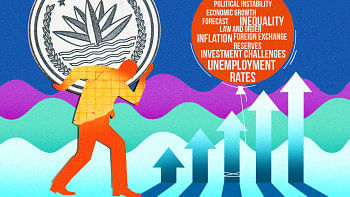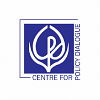CPD’s 30-year journey: A testament to growth and resilience

The Centre for Policy Dialogue (CPD) has completed an exciting journey spanning over three decades. In 1993, Prof Rehman Sobhan, an eminent economist and civil society leader in Bangladesh, took the initiative to establish the centre in response to the growing need of the country's civil society for a platform of its own after democracy returned in the early 1990s. It was a period when important policy reforms were being pursued in Bangladesh.
Prof Sobhan invited several eminent personalities to join CPD's board as distinguished members. It has been fortunate to have on its board globally acclaimed personalities and social entrepreneurs, such as the late Sir Fazle Hasan Abed, founder of BRAC, and Nobel Laureate Prof Muhammad Yunus, founder of Grameen Bank.
At the time it was established, CPD's board members perceived that it would contribute to strengthening the country's democratisation process by promoting a demand-driven developmental agenda and facilitating a process whereby stakeholders would have a say in the design, implementation and monitoring of developmental policies. CPD's journey in a country with limited space for independent voices offers ample experiences and lessons that can guide the think tank landscape in Bangladesh and other developing countries.
Demand-driven and policy-relevant research
CPD's overarching objective is to contribute to good governance by promoting accountability and transparency and ensuring equitable development. Towards that, the think tank makes significant strides in ensuring high-quality research, capacity development of researchers, institutional sustainability, and smooth leadership transition. During the initial years, e.g. 1993-94, CPD's activities included mainly organising dialogues and discussions on macroeconomic management, governance, and donor-recipient relationships. However, the need to incorporate research was recognised early on, both as input to and outcome of the dialogue process, ensuring that research themes are identified based on felt needs.
It is at this time that the proposal for CPD's flagship research programme, the Independent Review of Bangladesh's Development (IRBD), was developed as a study to provide home-grown development alternatives to the government and donors. With the first IRBD completed in May 1995, CPD developed a tradition of preparing its own research proposals in areas that were perceived to be important from a national perspective, and where it had the relevant competencies. Its research programme covers a wide range of issues, including governance, economic reforms, environmental sustainability, energy, women's empowerment, social development, the SDGs, trade, and the financial sector.
Dialogues for constructive policy engagement
At the core of CPD's activities lies its dialogue programme. It designs the dialogues in a manner that is not just a mere exchange of rhetoric and opinion but also promotes and stimulates constructive engagement and informed sharing of views. The dialogues are designed to come up with specific recommendations in terms of both redefining the policies and ensuring their effective implementation. These recommendations are then placed before the country's current and prospective policymakers as inputs to the policymaking process.
CPD brings together high government officials, senior agency executives, members of parliament (MPs), the business community, professionals, academics, non-government organisation (NGO) activists, and development partners to discuss specific policy issues in which they have relevant expertise. CPD dialogues also engage public interest groups such as trade unions, workers' and women's organisations, professional associations, and local community groups. Through these dialogues, policymakers and academics can engage directly with those who experience the real consequences of policies and may have valuable ideas and concerns about the validity of such policies.
Non-partisan stance, engagement with diverse stakeholders
Because of the importance of bringing together political parties to promote a consultative process for designing the reform activity, it is CPD's policy to be non-partisan in its outlook and to retain independence in designing its dialogues. Such a stance has enabled this organisation to bring together cabinet ministers and opposition leaders around the same table, even at times when the contending parties were not communicating with each other in parliament.
Thus, CPD dialogues are held in an environment where controversial issues may be discussed in a non-confrontational manner, and constructive solutions can be jointly explored. These initiatives have extended over several successive political regimes. Indeed, CPD can be credited for playing an important role in creating the tradition of multi-stakeholder consultations in Bangladesh.
Professional excellence and independence
CPD faces several challenges since it sees itself not just as a research institution but also as a think tank engaged in policy activism. Whenever it undertakes an assessment, including projections on GDP growth and assessment of other economic indicators, it has been exposed to criticism, particularly from government policymakers, who are not happy when their policies and policy outcomes are scrutinised. CPD also faced criticism from the private sector when it released its research findings, for example, on the banking sector crisis or living wages for the workers of the ready-made garment (RMG) sector. However, CPD has been able to withstand this because its research is evidence-based and analytically sound.
Broader alliances are critical
CPD's independent position created challenges in implementing its activities as it did for many NGOs and civil society organisations (CSOs) during the previous regime. Indeed, political polarisation in Bangladesh has significantly impacted the regulatory environment for NGOs and CSOs. Over the past decades, the country has witnessed a decline in policymakers' tolerance of objective criticism, leading to the use of new laws as a censorship tool. The remit of the NGO Affairs Bureau, the institution that regulates NGO activities, has been strengthened, posing challenges for NGOs and CSOs.
While the vigilance of regulatory bodies is crucial for ensuring transparency and accountability of NGO and CSO activities, the bureaucratic hurdles in obtaining clearance certificates often lead to delays. These regulations were often politically motivated to undermine specific organisations, creating an environment that hinders the development of a culture of free thinking and free academic practices. This underscores the need for streamlined processes and efficient governance. CPD has been engaged with like-minded CSOs in discussing these issues with policymakers, though it seemed difficult to convince the regulatory bodies as they were politicised by the previous government.
CPD will continue to articulate people's concerns
CPD is a think tank deeply invested in Bangladesh's future. Therefore, for more than 15 years, it has been vocal in identifying the inherent weaknesses of the growth model pursued by the autocratic Awami League government. Following the ousting the Awami League on August 5, 2024 by a student-led mass uprising, the interim government led by Prof Yunus is pursuing the difficult task of improving Bangladesh's macroeconomic stability by reinstating discipline and raising efficiency in economic management. In addition to addressing the immediate issues, the government will have to work in several areas, such as improving the competitiveness of the economy, enhancing productivity, developing sustainable infrastructure, participating in regional and global value chains, addressing climate change challenges, and mitigating economic and social inequalities in the short to medium terms.
CPD has flagged these issues and articulated concerns over Bangladesh's deteriorating socioeconomic situation, while the previous fascist government presented the false narrative of growth. CPD has always suggested reforms since economic vulnerabilities have been visible through the poor performance of all important sectors as well as increasing inequality due to a lack of good governance, accountability, transparency, and the rule of law. By remaining true to its mission, CPD will continue to contribute to the country's institutional and policy reform efforts in establishing an equitable and just society.
Dr Fahmida Khatun is executive director at the Centre for Policy Dialogue (CPD) and non-resident senior fellow at the Atlantic Council.
Views expressed in this article are the author's own.
Follow The Daily Star Opinion on Facebook for the latest opinions, commentaries and analyses by experts and professionals. To contribute your article or letter to The Daily Star Opinion, see our guidelines for submission.

 For all latest news, follow The Daily Star's Google News channel.
For all latest news, follow The Daily Star's Google News channel. 













Comments